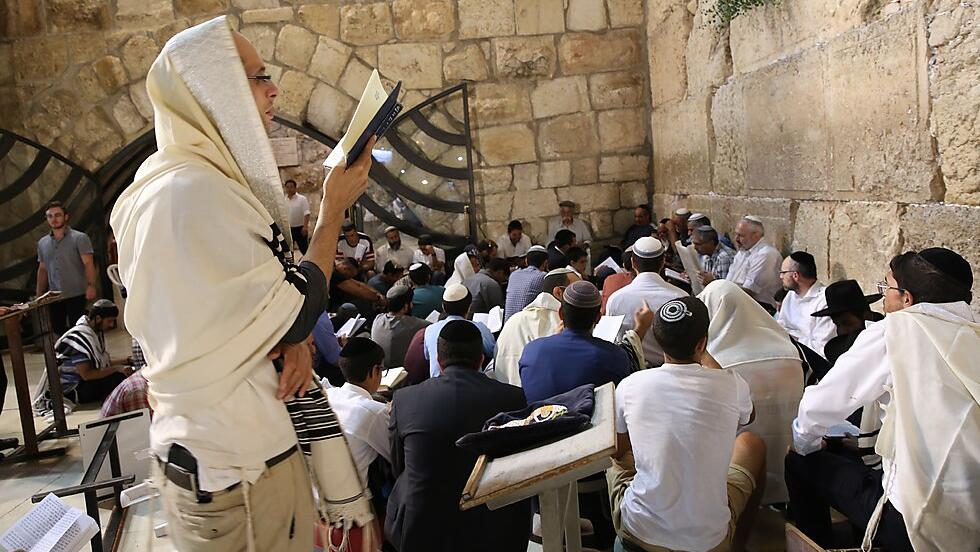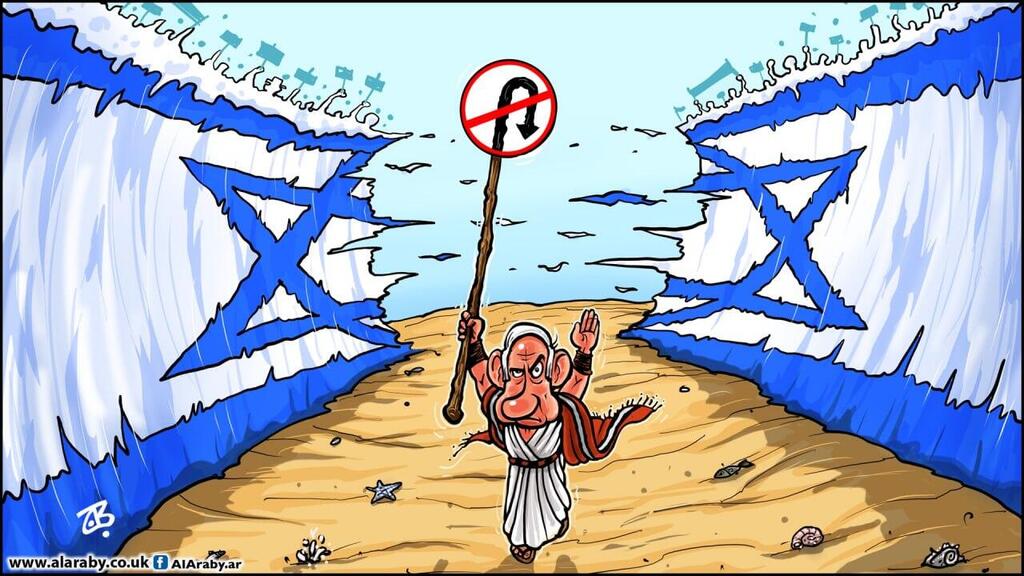On Wednesday we will sit on low stools in dimly lit synagogues and read the Book of Lamentations, and we will remember the profound tragedies that befell our people during two devastating historical events.
Read more:
And the day the Knesset passed legislation canceling the Supreme Court's ability to invoke the reasonableness clause will be remembered among the people who returned to Zion as a warning sign.
History has a tendency to repeat itself in cruel times. The most tragic events in Jewish history coincide with days of mourning for the destruction of the temples. The withdrawal from Gush Katif, with its traumatic memories, is observed on the eve of Tisha B'Av. Likewise, the passing of the reasonableness law occurred around Tisha B'Av. This tragic timing provokes somber reflections on the lessons we have never learned. It reminds us of the legacy of hatred toward others, which continues to divide us even as we mark the destruction of the Second Temple. It highlights our incapacity to listen to one another, to understand each other's pain, to come to each other's aid, and to find a place of compassion in our hearts for one another's anguish.
As someone who is part of the right-wing, I do not see a disaster in repealing the use of the reasonableness standard, but I do see a terrible tragedy in the reality that has unfolded as a result. The day when the Kingdom of Israel was de facto divided into two halves – one laughing and one crying –brought to my consciousness everything I have learned over the years about the rift between the people and its consequences, about destruction and its motivations.
In stories about the destruction of the Jewish sages, you can find the peripheral triggers that led to the great catastrophe: arguments over a chicken coop, disputes over a rooster and a hen, and a quarrel at a wedding where an uninvited guest was expelled. And when I saw the chaos on the streets and witnessed with weary eyes a hit-and-run in Ra'anana, a car crash with children on the road in Giv'at Shmuel, shots fired into the air at the entrance of a kibbutz, and the mutual taunting cries in the streets, I was filled with dread from history repeating itself.
As a Haredi Jew, I know that the Third Temple has not yet been built in its full sense, and therefore I still hope for its realization. However, the national home in which we live, the Israeli society of which we are all part, is experiencing a worrisome process of accelerated destruction. A glimmer of optimism lies in the very ability that might still remain within us – to look into our neighbor's eyes, free ourselves from preconceptions and listen; to use the last remaining threads from the torn fabric to sew together a new creation.
In the depths of this social abyss, maturity and responsibility are required from all sides. The side that prevailed by passing a law despite opposition and the side that succeeded in extracting a harsh price tag like no other. Now, instead of foolish celebrations on one side and desperate marches on the other, I wish that all of us would find the courage to take responsibility for what is left of this place. The time has come to calm down, to reconnect, to unite once again. On the eve of Tisha B'Av in the year 5783, now is the time.
Arye Erlich is editor of Mishpacha Magazine



